Unmasking Celebrities with Narcissistic Personality Disorder: Know the signs
Are you fascinated by the glitz and glamour of celebrities like Kanye West, Kim Kardashian, and Elon Musk, and ever curious about the psychological layers behind their public personas? Let me, Elena Hartley, take you on an exploration of a common undercurrent among these luminaries – Narcissistic Personality Disorder (NPD).
In this riveting journey, we’ll dissect the signs, impacts, and societal implications of NPD nested in the world of fame. With my background in psychology and knack for intriguing narratives, you can expect to gain profound insights painted with vivid imagery and expressive metaphors.
Feeling intrigued? Come, join me. Let’s delve into the enigmatic world of the rich and famous, and understand their realities through the lens of NPD. Remember, in empathizing and understanding, we also grow.
What is Narcissistic Personality Disorder (NPD)?
Narcissistic Personality Disorder (NPD) is a deeply complex mental health condition that presents with a pervasive pattern of grandiosity, need for admiration, and lack of empathy, which can cause significant social and occupational impairment, as detailed in this [continuing education activity](https://www.ncbi.nlm.nih.gov/books/NBK556001/). Those who grapple with it often experience a heightened sense of their own importance, a constant craving for admiration, and a disturbing lack of empathy toward the feelings and struggles of others.
Understanding NPD
Comprehending the intricacies of NPD involves recognizing its key components:
- Narcissistic Personality Disorder (NPD): At its core, NPD is characterized by an exaggerated sense of self-importance, coupled with an obsessive need for continuous attention and admiration. This often leads to strained relationships and a diminished capacity for empathy.
- Individuals with NPD are perpetually seeking validation, which can push others away and multiply their emotional isolation.
- NPD generally surfaces by early adulthood and persists as a chronic pattern, though its intensity can vary widely among different individuals.
Traits and Characteristics of NPD
To better understand NPD, it’s crucial to identify its hallmark traits:
- Grandiosity: Those living with NPD often inflate their achievements and talents, envisioning themselves at the pinnacle of success, power, brilliance, or beauty.
- Attention-seeking: An insatiable need for admiration often drives them, making them strive to be the focal point in any setting.
- Manipulation: Relationships can become a playground for manipulation, where others are seen as tools to further personal ambitions, without concern for their emotions or well-being.
- Lack of empathy: A notable difficulty in understanding or caring about the feelings and needs of others marks NPD.
- Public displays: To draw attention, they may resort to dramatic public outbursts, extravagant claims, or controversial actions.
Diagnosing NPD
Diagnosing NPD in individuals, especially in public figures, necessitates a thorough and clinical approach:
- Formal diagnosis: A qualified mental health professional must conduct a comprehensive evaluation to confirm an NPD diagnosis.
- Diagnostic criteria: This evaluation follows stringent criteria set out in the Diagnostic and Statistical Manual of Mental Disorders (DSM).
- Behavior patterns: Understanding long-term behavioral patterns and how they impact various life areas is crucial. This is particularly important when identifying celebrities with narcissistic personality disorder, as their public personas may mask deeper issues.
Common Traits Among Celebrities with Narcissistic Personality Disorder
Understanding the common traits that celebrities with narcissistic personality disorder exhibit can shed light on their complex behaviors, offering a clearer picture of how these traits manifest in the public eye. Below are some defining characteristics often observed.
Grandiosity
- Belief in Superiority: Celebrities with narcissistic personality disorder often possess an unwavering conviction of their own exceptional talents and abilities, seeing themselves as uniquely gifted.
- Extreme Confidence: They project an image of extreme confidence and self-assurance, which often conceals underlying insecurities and vulnerabilities.
- Sense of Entitlement: These individuals typically expect special treatment and privileges, believing that they deserve more due to their perceived superiority.
Attention-Seeking
- Spotlight Pursuit: Craving the spotlight, celebrities with NPD engage in dramatic or exaggerated behaviors to remain in the public eye.
- Continuous Validation: They have a constant need for admiration and approval from the public and media, seeking affirmation of their self-worth.
- Social Media Use: Frequent use of social media platforms allows them to maintain visibility and engagement with their audience, feeding their desire for continuous recognition.
Manipulation
- Charm or Deceit: Celebrities with NPD often utilize their charm or resort to deceit to achieve their personal goals, showing little genuine concern for others.
- Exploiting Relationships: They exploit personal and professional relationships to advance their careers, viewing people more as tools rather than equals.
- Emotional Impact: Their manipulative actions often have a significant emotional or psychological impact on those around them, although they show little regard for these consequences.
Lack of Empathy
- Ignoring Feelings: They often dismiss or ignore the feelings and needs of others, focusing predominantly on their own desires and ambitions.
- Superficial Relationships: Relationships with those who have NPD are frequently superficial and self-serving, lacking genuine emotional depth.
- Emotional Connection: Forming genuine emotional connections is challenging for them, as empathy and mutual respect are often absent in their interactions.
Public Displays
- Controversial Involvement: Celebrities with NPD are frequently involved in controversies or scandals, behaviors that maintain their presence in the media.
- Outlandish Claims: They often make extravagant or outlandish claims to capture public attention, reinforcing their inflated self-image.
- Public Outbursts: Engaging in public outbursts or disputes generates a buzz, ensuring they remain a topic of public conversation.
Celebrities with Narcissistic Personality Disorder
The following section delves into the lives of celebrities who exhibit traits associated with Narcissistic Personality Disorder (NPD). Their behaviors offer a window into understanding this complex condition, elucidating the impact of fame, power, and attention on an individual’s psyche.
Kanye West
- Attention-Seeking Behavior: Kanye West’s infamous interruption of Taylor Swift’s award acceptance speech underscores his intense craving for attention and validation.
- Public Declarations: His public announcement of running for US Presidency exemplifies his relentless pursuit to remain in the limelight.
- Extravagant Self-Importance: Kanye frequently emphasizes his self-importance with grandiose and unpredictable behavior, showcasing his unique vision.
Kim Kardashian
- Relentless Self-Promotion: As a reality TV star and social media influencer, Kim Kardashian’s continuous self-promotion highlights her strategic use of media to uphold her public image.
- Frequent Online Updates: Her daily updates on social media platforms reveal her persistent need for public attention.
- Controversial Rise to Fame: Speculation around the release of a sex tape to gain fame underscores her calculated efforts for media visibility.
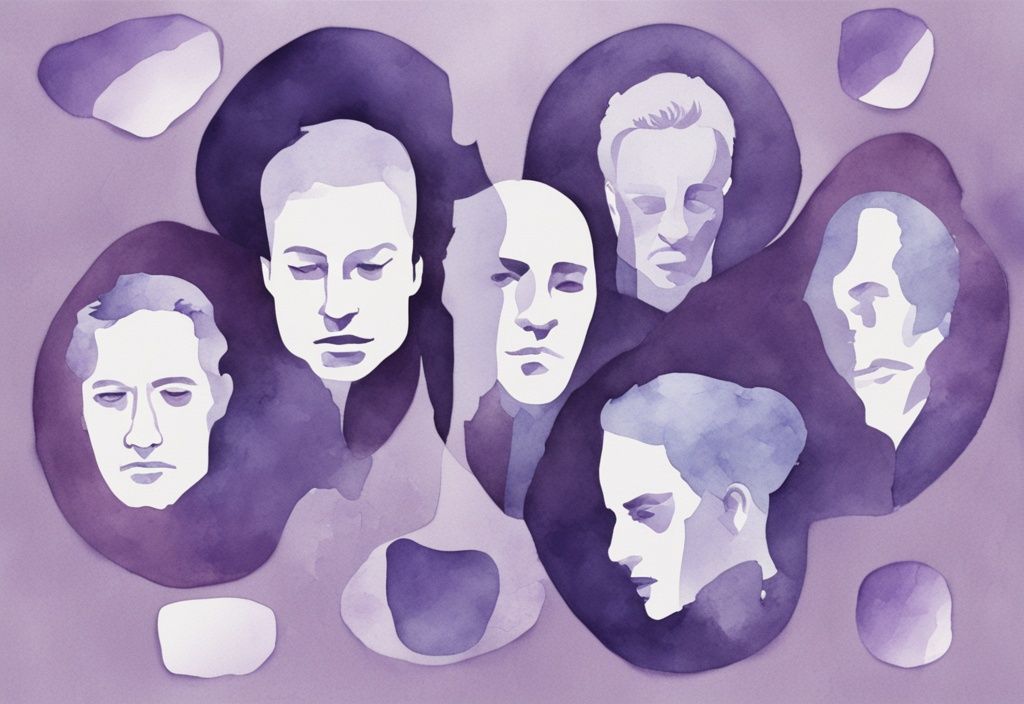
Mariah Carey
- Disparaging Attitude: Mariah Carey is known for treating others as inferior, frequently demonstrating a lack of respect in interactions.
- Blaming External Factors: During a controversial New Year’s Eve performance, Mariah shifted blame to external factors, avoiding personal accountability.
- Victim Mentality: She often portrays herself as a victim when criticized, deflecting blame and accountability.
Madonna
- Image Reinvention: Madonna’s continuous reinvention of her image exemplifies her skill at maintaining public curiosity and interest.
- Demanding Behavior: Known for high expectations, her interactions with employees often reveal a demanding demeanor.
- Bizarre Claims: Madonna’s outlandish assertions, such as the ability to remove nuclear waste, highlight her need to stand out.
Donald Trump
- Self-Promotion: Former US President Donald Trump is notorious for his extravagant self-promotion and provocative statements.
- Sensitivity to Criticism: He displays extreme sensitivity to criticism, often retaliating publicly.
- Narcissistic Traits: His behavior incorporates grandiosity, manipulation, and a notable lack of empathy in public and professional realms.
Elon Musk
- Highlighting Achievements: By frequently using Twitter to share his accomplishments and grand visions like colonizing Mars, Elon Musk draws consistent attention to his achievements.
- Arrogant Behavior: Often perceived as arrogant and domineering in professional settings, his behavior underscores his controlling nature.
- Visionary Projects: His pursuit of ambitious projects reflects his self-perception as a visionary and innovator.
Jim Jones
- Cult Leadership: As the cult leader responsible for over 900 deaths in a mass suicide/murder, Jim Jones displayed extreme narcissistic traits.
- Delusions of Grandeur: His grandiose delusions of being a spiritual savior highlighted his narcissistic personality.
- Lack of Empathy: Justifying his abusive practices as necessary for a greater good revealed his profound lack of empathy.
Others
- Adolf Hitler: Demonstrated grandiose beliefs of racial supremacy, skilled manipulation of public perception, and ruthless behavior.
- Steve Jobs: Often believed in his own special entitlement, occasionally at the expense of others’ empathy.
- Elizabeth Holmes: With charisma yet ruthlessness, manipulated investors and employees, leading to fraud charges.
- Richard Nixon: Exhibited manipulative behavior and paranoia, central to the Watergate scandal.
- Celebrities with Traits: Stars like Tom Cruise and Justin Bieber frequently display narcissistic traits through their highly publicized interactions and personas.
The Impact of NPD on Celebrities’ Personal Lives
Celebrities often live under a microscope, with their every move scrutinized by the public. For those with narcissistic personality disorder (NPD), this intense scrutiny can magnify the traits associated with the condition. The following sections delve into how NPD affects various aspects of their lives, from relationships to mental health and substance use.
Relationships
- Personal relationships often suffer because of the self-centered behavior exhibited by celebrities with narcissistic personality disorder (NPD). Their focus on themselves leaves little room for genuine connection.
- Such relationships are often strained or superficial, characterized by manipulation and a noticeable lack of empathy. This creates an emotionally draining environment for those involved, leading to significant emotional distress.
- Family members and close associates frequently bear the brunt of their emotional volatility and lack of empathy. This can fracture familial bonds and create a chasm that is hard to bridge.
Mental Health
- Celebrities with NPD commonly experience co-occurring mental health issues. Anxiety, depression, and substance abuse are prevalent as they struggle with their internal conflicts and the pressures of external validation.
- Their insatiable need for admiration can lead to severe burnout and mental exhaustion. Constantly maintaining a grandiose public image is taxing and often unsustainable.
- The disparity between their public persona and personal identity often results in inner turmoil. This internal conflict can create a continuous cycle of mental health challenges, leaving them feeling isolated and misunderstood.
Substance Use
- Substance use is frequently a coping mechanism for celebrities with narcissistic personality disorder to manage stress or mental health problems. This often leads to addiction and a myriad of other complications.
- Substance abuse tends to exacerbate their narcissistic traits, amplifying problematic behaviors and causing further personal and legal issues. It disrupts their ability to maintain control over their public and private lives.
- Public episodes of erratic behavior, fueled by substance abuse, often attract negative media attention. This not only complicates their personal and professional lives but also casts a glaring spotlight on their struggles, making recovery more challenging.
The Impact of NPD on Celebrities’ Professional Lives
Sometimes, the same traits that drive celebrities to the top in the highly competitive entertainment industry can also contribute to their downfall. Narcissistic Personality Disorder (NPD) is particularly impactful. Let’s explore how NPD influences various facets of a celebrity’s professional life, from their career highs to the inevitable lows.
Career Success
- Charisma and Confidence: Celebrities with narcissistic personality disorder often radiate a magnetism that’s hard to ignore. Their unshakeable confidence allows them to be captivating, holding audiences in the palm of their hand. Picture an actor commanding the screen or a musician mesmerizing a stadium full of fans.
- Relentless Ambition: Imagine having a drive that never switches off. Celebrities with NPD are fueled by an insatiable hunger for fame, accolades, and the limelight. This relentless ambition can lead them to impressive achievements, but it never quite fulfills their deep need for admiration.
- Workplace Tensions: While these stars shine brightly, their self-centered approach often creates tension behind the scenes. Colleagues and collaborators might find it challenging to work with someone who lacks empathy and exhibits manipulative behaviors, resulting in a tumultuous professional environment.
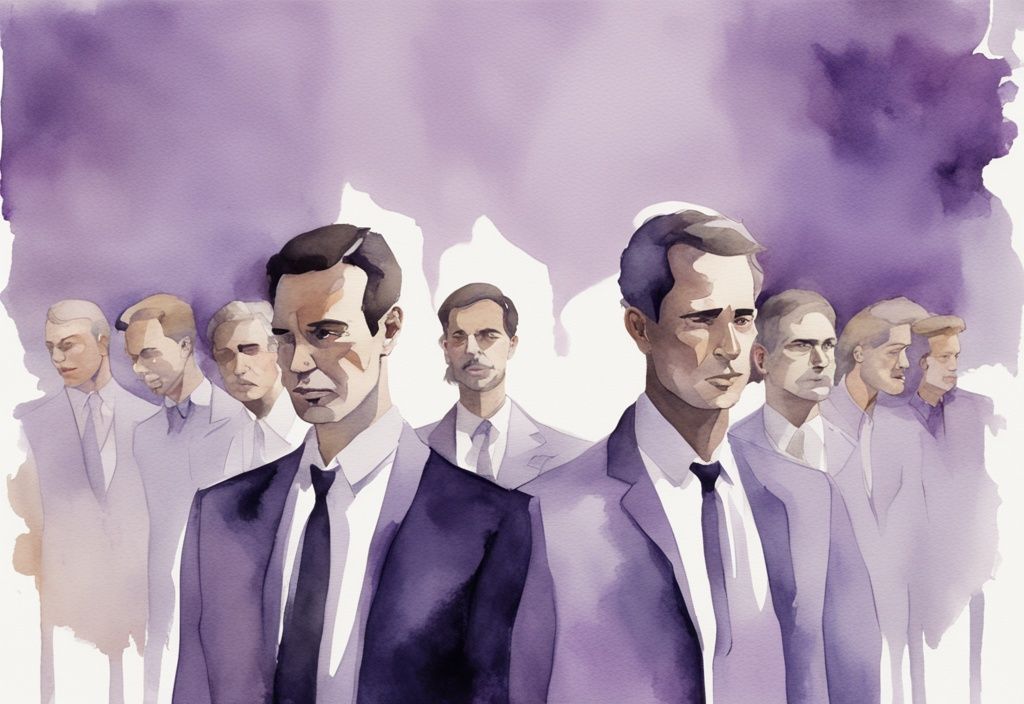
Scandals and Legal Issues
- Manipulative Behavior: The manipulative tendencies associated with NPD can easily escalate into scandals for celebrities. Their need for control and dominance can lead to unethical decisions that make headlines for all the wrong reasons.
- High-Profile Scandals: Lacking empathy often means making choices that others find offensive or inappropriate, leading to public outcry. This can result in everything from controversial statements to questionable endorsements, pulling the spotlight toward their least flattering moments.
- Legal Consequences: The scandals don’t just end with public backlash. Often, they face lawsuits, breaches of contract, and other legal challenges. These legal troubles not only tarnish their public image but also impact their financial stability and career trajectory.
Burned Bridges
- Damaged Relationships: The self-serving nature inherent in NPD means that genuine connections often fall by the wayside. Celebrities with NPD frequently end up isolating themselves, losing the trust and respect of industry peers, collaborators, and even their most loyal fans.
- Reputation at Stake: As these celebrities continue to sever ties, their reputation takes a hit. Each burned bridge echoes throughout the industry, making it harder to secure future opportunities and collaborations.
- Longevity Concerns: Sustaining a long-term career becomes a formidable challenge when relationships deteriorate. With limited support and growing distrust, celebrities with NPD find it increasingly difficult to maintain their standing and legacy in an ever-evolving industry.
Navigating the world of fame and fortune is complex, and for celebrities with narcissistic personality disorder, it’s a double-edged sword. While their charisma and ambition can lead to extraordinary success, their manipulative behaviors and lack of empathy often pave the way for scandals, legal troubles, and damaged relationships. In this high-stakes game, the very traits that make them shine brightly can also become their greatest downfall.
The Role of Social Media in Exacerbating or Revealing NPD in Celebrities
Social media, with its pervasive presence and instant feedback mechanisms, serves as both a stage and a magnifying glass for celebrities with narcissistic personality disorder (NPD). Through platforms like Instagram, Twitter, and Facebook, these figures find fertile ground to both amplify their narcissistic tendencies and expose underlying behaviors that might otherwise remain hidden.
Platforms as a Breeding Ground for Narcissistic Behavior
- Constant Self-Promotion: Social media platforms offer endless opportunities for celebrities with NPD to engage in self-promotion. Features like stories, live videos, and feeds create a continuous stream of updates, ensuring they remain at the center of public attention.
- Idealized Image Cultivation: These celebrities often craft an idealized version of themselves through curated posts. Utilizing filters, professional photography, and selective sharing helps them maintain a perfect facade, reinforcing their grandiose self-image.
- Direct Audience Interaction: Platforms like Instagram and Twitter allow for direct engagement with the audience. This builds a more intimate connection and provides immediate validation through likes, comments, and shares, fueling their narcissistic tendencies.
- Validation Cycle: There is a continuous need for validation from followers. Celebrities post content specifically designed to garner attention and admiration, creating a feedback loop that reinforces their self-centered behavior with each positive public reaction.
Exposing Narcissistic Behavior
- Transparency and Immediacy: The transparent nature of social media means that narcissistic behaviors become highly visible and are subject to public scrutiny. Celebrities’ posts and interactions are permanently recorded, easily revisitable, and can be widely shared.
- Public Outbursts and Controversies: Celebrities with NPD may have public meltdowns or make controversial statements. These moments are quickly captured and disseminated, making their true personalities harder to mask under scrutiny.
- Real-Time Reactions: Followers and critics provide immediate feedback on social media. The real-time reactions to posts and statements contribute to bolstering or critiquing the celebrity’s behavior, often igniting ongoing debates and discussions.
- Authenticity Revealed: In a world where every action is broadcasted, the authentic personality of celebrities often comes to light. Their online interactions reveal underlying narcissistic traits, sparking public discourse about their true nature.
Public Perception and Media Representation of Celebrities with NPD
Celebrities with narcissistic personality disorder (NPD) are often thrust into the limelight, not just for their talents but for their personality traits. The media and public reactions contribute to shaping societal attitudes towards NPD, creating a multifaceted tapestry of admiration, criticism, and curiosity. This section explores the media’s role in portraying these celebrities, how the public reacts, and the broader impact on society.
Media Portrayal
- Sensationalism: The media tends to sensationalize the actions and statements of celebrities with narcissistic personality disorder. Imagine the headlines: high-profile antics and controversial behaviors are spotlighted, drawing public attention and fueling gossip columns.
- Controversies and Scandals: Reports often zero in on controversies and scandals. This focus perpetuates stereotypes about narcissism, feeding the public’s fascination with celebrity downfalls and dramatic stories.
- Mixed Impact: Media representation can have dual outcomes. It might elevate a celebrity’s status by keeping them in the public eye but can also invite significant backlash, potentially harming their career and reputation.
Public Reaction and Stigma
- Fascination and Criticism: Reactions from the public are a blend of fascination and criticism. Some fans admire the audacity and confidence of celebrities with narcissistic personality disorder, while others quickly condemn their perceived lack of humility and empathy.
- Attracting Followers and Admirers: Despite the stigma, these celebrities can still amass loyal followers. Their larger-than-life personas and visibility captivate people who are either supportive of or intrigued by their actions.
- Societal Influence: The ongoing discourse about these celebrities’ behaviors influences societal attitudes toward narcissism and mental health. This discussion can either perpetuate misunderstandings and stigma or lead to a deeper comprehension of personality disorders.
Impact on Society
- Shaping Norms and Values: The behavior of celebrities with narcissistic personality disorder can significantly shape societal norms around fame and success. Their actions often promote a culture of self-centeredness and craving attention.
- Influence on Younger Audiences: Younger generations, who are highly impressionable, might start to view self-promotion and vanity as desirable traits. This normalization can lead to an increase in similar behaviors across society.
- Starting Important Conversations: However, the visibility of these celebrities can ignite vital conversations about mental health and personality disorders. Their high-profile status can be leveraged to raise awareness and foster a more compassionate understanding of NPD.
Therapies and Treatments for Narcissistic Personality Disorder
Understanding the diverse therapies for narcissistic personality disorder (NPD) offers crucial pathways for healing. These approaches not only target the symptomatic behaviors seen in celebrities but also delve into the underlying psychological mechanisms driving their narcissism. Each method takes a unique route to encourage self-awareness, empathy, and healthier relationships.
Methods Used for Treatment
- Cognitive Behavioral Therapy (CBT): Addressing the distorted thinking patterns often exhibited by celebrities with narcissistic personality disorder, CBT helps individuals identify and alter harmful beliefs. Imagine CBT as a mental workout, a way to rewire thinking and promote healthier behaviors over time.
- Psychodynamic Therapy: This method delves deep into the root causes of narcissism, exploring early life experiences that molded these traits. By unearthing these foundational issues, psychodynamic therapy can provide celebrities with insights, encouraging personal growth and meaningful change.
- Group Therapy: Participating in group therapy sessions offers celebrities with narcissistic personality disorder essential opportunities to improve their interpersonal skills. With the dynamic of feedback in a controlled setting, it fosters empathy and enhances social connections, crucial for their recovery.
- Family Therapy: By bringing family members into the therapeutic process, family therapy tackles relational dynamics head-on. It paves the way for mending strained relationships and building a supportive network critical for any celebrity’s meaningful change.
Opportunities for Recovery and Change
- Commitment to Treatment: For celebrities facing narcissistic personality disorder, unwavering commitment to therapy can lead to profound improvements. While the road may be challenging, staying engaged in the therapeutic process is essential for deeply rooted change.
- Building Self-Awareness: Enhancing self-awareness is a cornerstone of NPD treatment. Therapy sessions serve as mirrors, reflecting back harmful behaviors and their impacts. This reflection fosters insightful self-reflection, pivotal for their growth.
- Developing Empathy: Cultivating empathy is integral to overcoming narcissistic traits. Therapeutic interventions aim to slowly build the ability to understand and share the feelings of others, which is often underdeveloped in those with NPD.
- Support Systems: Support from mental health professionals, family, and therapy groups creates a robust network. This collective encouragement reinforces positive changes, ensuring that celebrities with narcissistic personality disorder feel supported throughout their recovery journey.
Sociocultural Implications of NPD in Celebrity Culture
The intersection of narcissistic personality disorder (NPD) with celebrity culture reveals deep sociocultural patterns. As the fascination with celebrities continues to grow, so too does the public’s perception of narcissism, often blurring the lines between healthy self-confidence and the maladaptive traits associated with NPD.
Influence of Celebrity Culture on Perception
- Celebrity Fascination: Our society’s intense obsession with celebrities can amplify narcissistic tendencies. The constant scrutiny and admiration that celebrities receive can inflate their self-image, particularly in those diagnosed with narcissistic personality disorder. Imagine living under a magnifying glass, each praise acting as a drop of fuel to the fire of narcissism.
- Media Reinforcement: Extensive media coverage significantly reinforces narcissistic behaviors. Celebrities with narcissistic personality disorder often receive disproportionate attention, contributing to grandiose views of themselves. This relentless spotlight can distort reality, creating a universe where the celebrity’s needs and accomplishments reign supreme.
- Neglect of Psychological Issues: Celebrity culture tends to sensationalize behaviors rather than addressing underlying psychological issues. This emphasis on the superficial overlooks the mental health struggles that celebrities with narcissistic personality disorder face. In a world that celebrates their public personas, their private battles often remain unnoticed and unsupported.
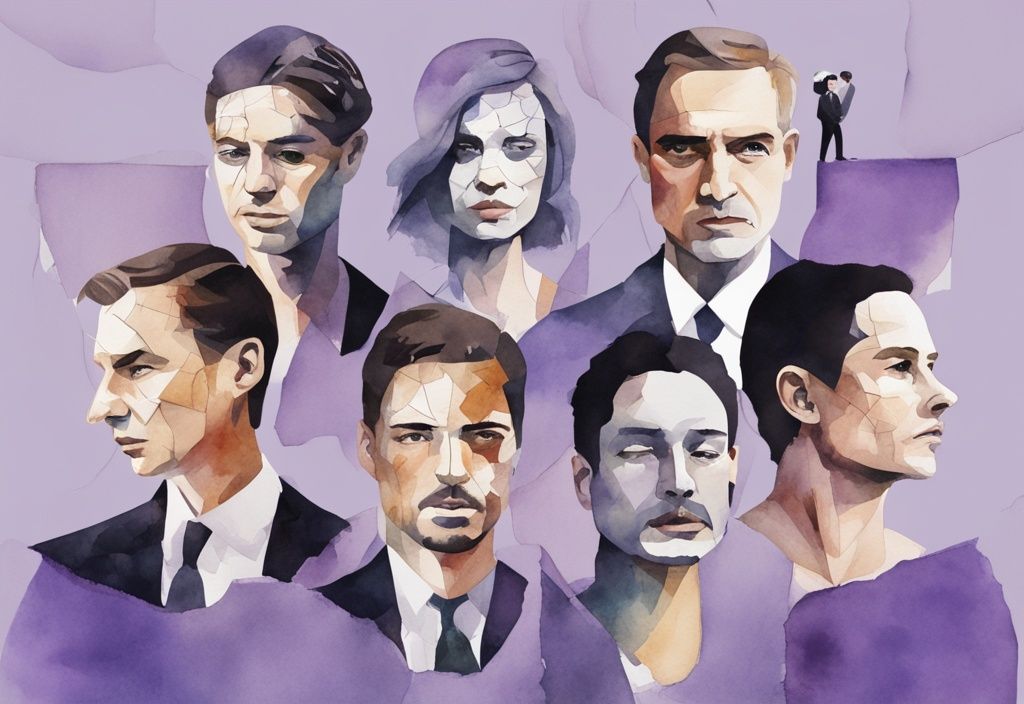
Evolving Trends and Selfie Culture
- Social Media Influence: The rise of social media and selfie culture has revolutionized societal behaviors. Self-promotion and validation are now more prevalent than ever. Celebrities with narcissistic personality disorder thrive in this environment, continuously curating and sharing their lives to maintain public interest. It’s a digital dance of constant affirmation, where each like and share feeds the narcissistic need for admiration.
- Impact on Younger Generations: Younger generations are particularly vulnerable to these trends. Growing up in an age where appearance and social validation are paramount can cultivate narcissistic traits as they emulate celebrity behaviors online. The incessant need for approval can create a mirror, reflecting not just an image but the deep-seated desire for acceptance and adulation.
- Normalization of Narcissism: With the normalization of vanity and self-promotion, traits associated with narcissistic personality disorder are becoming more accepted. This shift may lead to more widespread narcissistic behaviors, blurring the lines between healthy self-confidence and maladaptive narcissism. The landscape of social interactions is changing, where narcissism is often cloaked in the guise of self-assuredness and personal branding.
Conclusion
The intertwining of celebrity culture and narcissistic personality disorder (NPD) presents a landscape that’s both complex and fascinating.
Celebrities with narcissistic personality disorder often captivate us, drawing us into their lives that brim with both spectacular success and notable strife.
In their professional realms, these celebrities reach extraordinary heights thanks to their sheer ambition, undeniable charisma, and grandiose self-perception. Yet, it is this same tapestry of traits that can weave tumultuous personal and professional relationships. The relentless need for admiration and empathy deficiency can ignite public scandals and personal conflicts, painting a portrait of brilliance marred by shadows.
From a personal lens, the ramifications of NPD are profound. Familial ties and close relationships often bear the strain, marked by tension and conflict. Amid their public acclaim, these celebrities frequently grapple with other mental health concerns, such as anxiety, depression, and substance abuse. The insatiable hunger for validation not only fosters emotional exhaustion but also blurs the line between their public personas and authentic selves.
Recognizing NPD in celebrities calls for a blend of empathy and informed awareness. By understanding the symptoms of NPD and the dynamic challenges it brings, we can begin to foster a nuanced perspective on these individuals. Beneath the sensational headlines and curated social media images lie real, often troubled, human beings deserving of compassion and support.
The prominence of narcissistic traits in celebrities opens the door to critical conversations about mental health and personality disorders. Illuminating these issues encourages a societal shift towards understanding and compassion, abandoning judgment and stigma. This progress stands to benefit not only the celebrities themselves but also the broader community, nurturing a culture of empathy and support.
FAQ
What are the main traits of Narcissistic Personality Disorder?
Understanding the main traits of Narcissistic Personality Disorder (NPD) can be challenging but enlightening, especially when examining the lives of celebrities with this condition. Key traits include:
- Grandiosity: A persistent sense of superiority and the need for admiration.
- Attention-Seeking: Constantly seeking validation from others.
- Manipulation: Using others for personal gain without regard for their feelings.
- Lack of Empathy: Inability to recognize or respect the feelings and needs of others.
- Self-Absorption: An intense focus on oneself at the expense of others.
- Sense of Entitlement: Believing they deserve special treatment and admiration.
- Interpersonal Difficulties: Struggling to maintain healthy and balanced relationships.
These traits can manifest strongly in public figures, making their behaviors more visible but also often misconstrued.
Can celebrities with NPD change through therapy?
The journey to change for celebrities with NPD, while arduous, is indeed possible. Here’s how therapy plays a role:
- Therapeutic Potential: Therapy can lead to significant improvement with consistent effort.
- Long-Term Commitment: A steadfast commitment to long-term treatment is critical for progress.
- Effective Methods: Techniques like Cognitive Behavioral Therapy (CBT) and psychodynamic therapy have proven beneficial.
Remember, it’s a slow and continuous process, but with dedication and the right support, positive change is attainable.
How does media portrayal influence public perception of narcissistic celebrities?
The media’s depiction of celebrities with NPD can vastly shape public opinion. Consider these points:
- Sensationalism: Media often sensationalizes negative behaviors, reinforcing harmful stereotypes.
- Public Reaction: The public might respond with a mix of fascination and criticism.
- Awareness and Dialogue: Despite potential misconceptions, such portrayals can also raise awareness and spark necessary conversations about mental health.
Media narratives are powerful, and they can both inform and misinform, so it’s crucial to approach these stories with a critical mind.
Is it safe to generalize all celebrities as narcissists?
It’s important to avoid broad generalizations about celebrities and NPD. Here’s why:
- Avoiding Generalizations: Judging based solely on public behavior is dangerous and often inaccurate.
- Varied Personalities: Many successful celebrities do not exhibit traits of NPD.
- Need for Professional Assessment: Professional evaluation is necessary for an accurate diagnosis.
Each individual is unique, and while some behaviors may fit the profile of NPD, it takes a comprehensive assessment to truly understand their personality.
What is the role of social media in revealing narcissistic behavior in celebrities?
Social media plays a pivotal role in highlighting the behaviors of celebrities, sometimes casting light on narcissistic tendencies:
- Platform for Self-Promotion: Social media serves as a space for constant self-promotion and validation-seeking.
- Behavioral Exposure: It reveals both the positive facets and controversial behaviors of public figures.
- Real-Time Reactions: Immediate feedback from followers and critics can provide insights into true personalities.
Through the lens of social media, the public gains a nuanced view of celebrities, seeing them in their most unfiltered states.
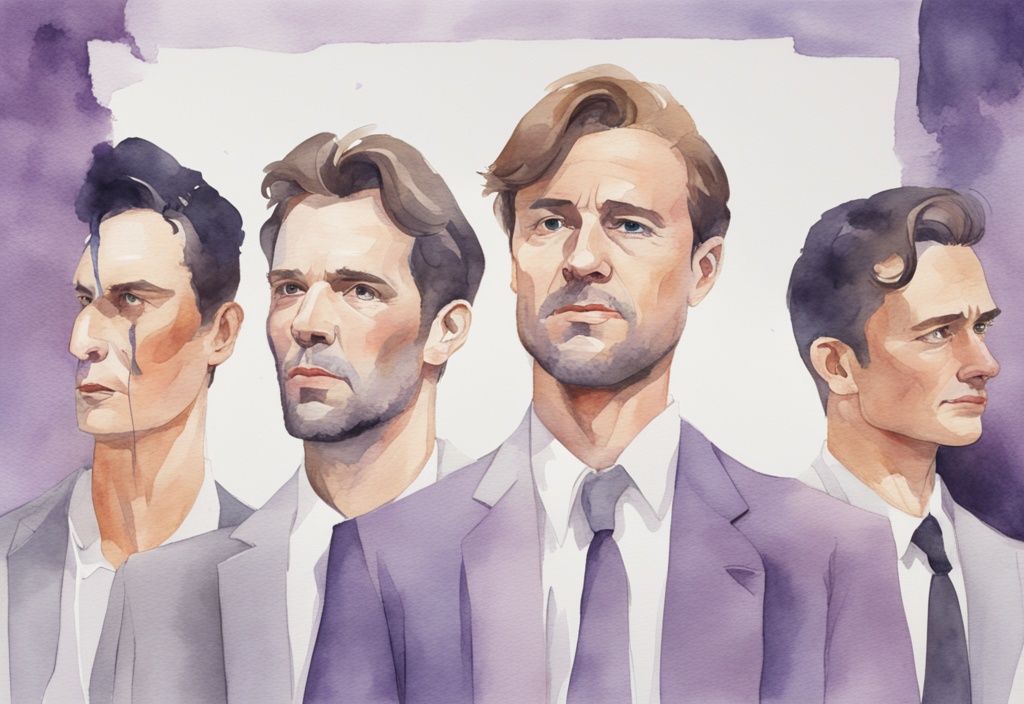

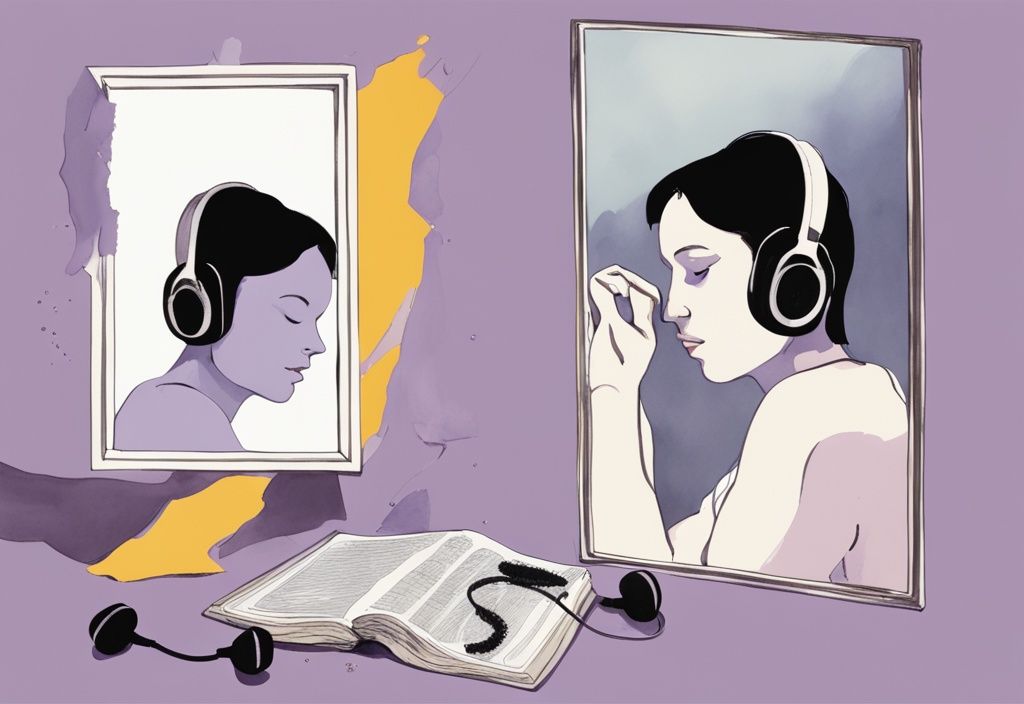











Post Comment